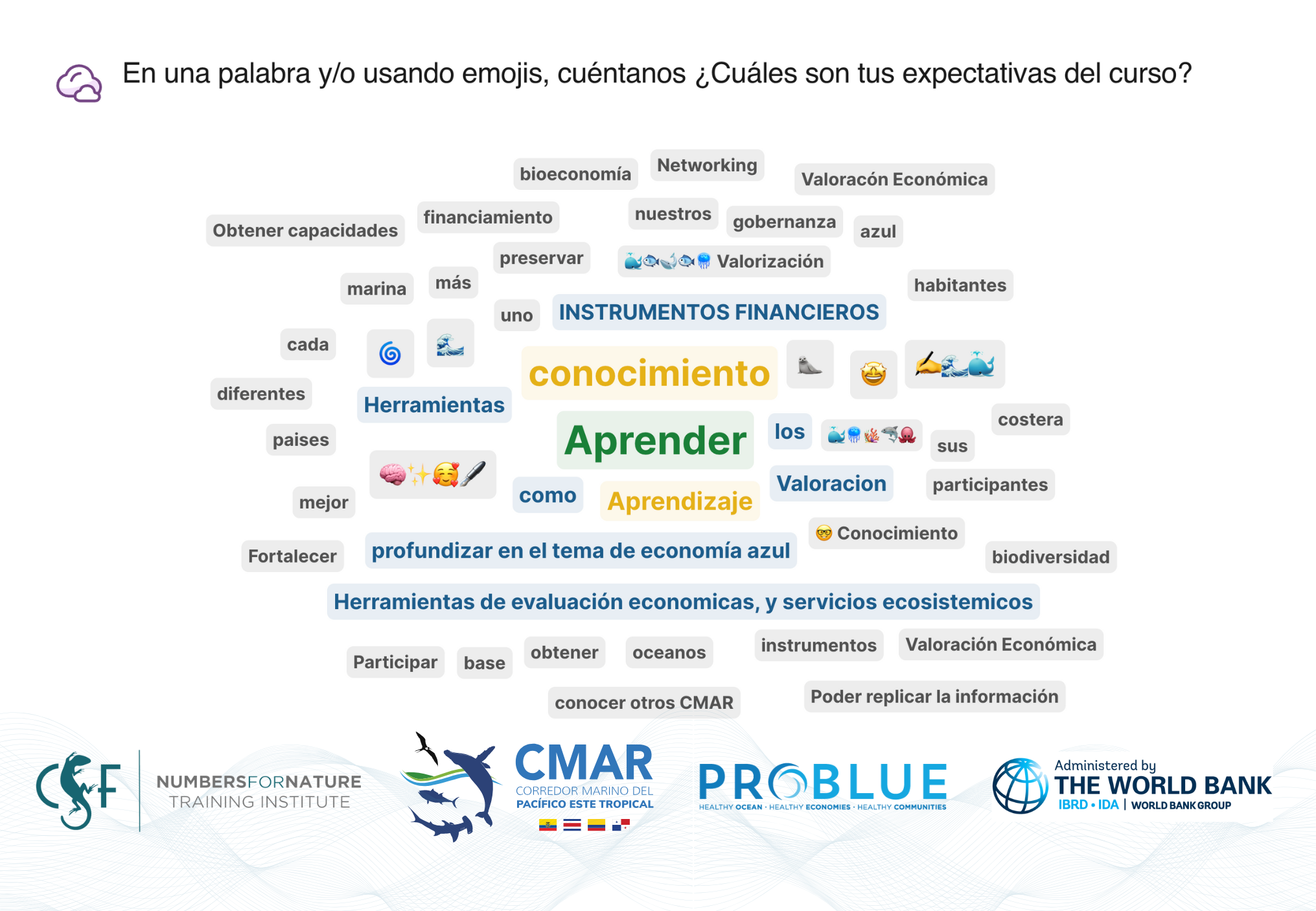The Blue Economy course for CMAR partners is underway!
The virtual course Blue Economy for CMAR Partners is now underway. This training program was developed by Conservation Strategy Fund, through its Numbers for Nature Training Institute, with the support of the World Bank's PROBLUE Program and in coordination with the Secretariat of the Eastern Tropical Pacific Marine Corridor (CMAR).
Over the course of eight weeks, fifty professionals dedicated to the conservation of marine protected areas and the sustainable management of ocean resources in Panama, Costa Rica, Ecuador, Colombia, and Mexico will strengthen their skills in economic and financial tools to support strategic planning and more effective management of marine protected areas.
The course places special emphasis on four core themes:
- Natural Resource Economics – Marine Resources and Fisheries Economics: ocean accounts systems, resource allocation, and addressing market failures.
- Economic Analysis Tools: cost-benefit analysis and economic valuation for decision-making.
- Blue Finance: innovative financial instruments such as blue bonds, impact investments, and public-private partnerships.
- Economic Instruments for Policy and Governance: economic tools to support public policy on marine resources, with a focus on national and global regulatory frameworks for marine sustainability.
At the end of the academic modules, participants will also attend guest expert masterclasses, where they will hear from regional leaders on topics such as financing mechanisms, economic tools, and organizational leadership.
Learning goals and expectations
Course participants have expressed a strong interest in gaining practical knowledge and tools for marine conservation and advancing the blue economy in the region. They are particularly motivated to strengthen their technical skills in areas such as economic valuation, financing, and marine resource management.
Their main areas of interest include natural resource economics, economic instruments for policy and governance, and blue finance—highlighting a clear intent to apply economic concepts in the design of strategies and sustainable public policies. While most participants already have a basic understanding of economics, they are eager to deepen and tailor this knowledge to their work, especially in the management of marine protected areas and coastal resources. Many also emphasized their interest in exchanging regional experiences that can enrich their professional practice.
One voice that clearly summarizes these aspirations is that of Alberto Proaño, from the Galápagos National Park, who shared:
“I want to join a blue economy course to strengthen my ability to apply this approach in managing marine ecosystems in Galápagos. I'm eager to learn how to value ocean services, use tools for better marine spatial planning, and explore financing mechanisms that support conservation. This learning will help me design stronger proposals that connect science, conservation, and community well-being, and inform decision-making in my role at the National Park.”
These expectations reaffirm the relevance of the course and the importance of strengthening the technical capacities of those leading conservation efforts across the Eastern Tropical Pacific Marine Corridor.

At CSF, we are grateful for the trust of the World Bank and the commitment of the CMAR Secretariat in making this collaborative learning space possible. We are confident that this course will help consolidate strategic capacities for more effective and sustainable ocean and ecosystem management.
- Log in to post comments

